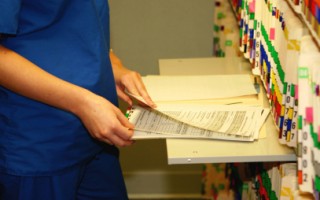Once you’ve found a practice to buy you’ll need to conduct your due diligence and then after you have entered a letter of intent or the purchase agreements then conduct a patient chart audit. This is your opportunity to find out more about the practice and to verify any representations made about the practice. When conducting your due diligence and audit, you should have unobstructed access to, or should be able to gain knowledge about the following:
- At least three years historical tax returns and financial statements, including the most recent interim operating income statement.
- A complete inventory of all furniture and equipment being sold with the practice, including their depreciation schedule.
- Staff details, including salaries, benefits and length of service with the practice.
- Complete access to all patient records.
- Access to all insurance plans the practice is involved with.
- The reason why the practice is being sold.
- To have a copy of the draft letter of introduction and recommendation from the seller that will be sent to all existing patients after the dental practice transition.
- AR/Aging Summary
- Production by procedure and category reports
- Office Lease and Addendums
- Lists of Contracts of the practice
- Fee Schedule
In addition you should be able to walk through the practice; review and audit the patient records and the appointment book just before the sale is completed. It’s essential that you are well prepared for this audit and know exactly which questions need to be asked and answered. It can often prove awkward to try to check on details which have been missed out at a later stage.

It’s easiest to approach an audit methodically and step-by-step.

1. Looking at the practices financial reports. These should be complete up until three months before you began reviewing the dental practice (interim P&L). They should include an interim income statement, as well as the last three years tax returns and P&L’s. It’s often best to get this specialized information analyzed by an acquisition consultant or accountant to ensure you don’t miss any relevant facts.
2. Examining patient records. It’s important to know the number of active patient files a practice has, but many dentists are unaware of the exact numbers. A practice consultant can help compile this information for you by setting careful parameters when examining a sample of the files. They may also be able to secure an agreement enabling damages to be claimed if the seller significantly misrepresents information in the summary report. The appointment system can also be checked to verify the practices activity level and to gauge the percentage of new patients per month.
3. Examining staff records. This will show you how long any member of staff has been with the practice and whether anyone is related to the seller. Gross wages should account for between 22% and 28% of total gross production. You’ll also be able to see benefits currently offered and will need to decide which benefits you will provide in the future. It’s a good idea to interview each staff member as this will give you a new perspective on the practice, and it’s a great opportunity to assess individual strengths and weaknesses. You’ll then have time to decide whether an employee is in a position which is best suited to them, or whether it will be necessary to realign duties once you have purchased the practice.
4. Evaluating the condition of the practice. Does the practice need any repairs or cleaning, or is it in good condition? Sometimes it may be necessary to replace furnishings and carpets, or to repaint an area shortly after the acquisition is completed. If this is the case then calculate the amount of money needed to complete the work, so it can either be taken into consideration when discussing the price to be paid for the practice, or added to the practice acquisition financing request.
If you are currently thinking about purchasing a dental practice, view our buyer’s steps and see a list of practices for sale.



